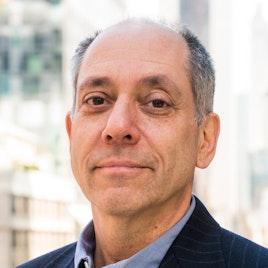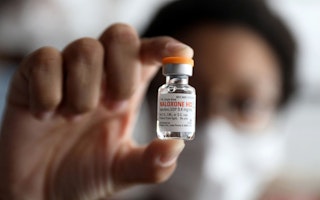Breaking the Chains? How Police Practices Are Constraining HIV Efforts
By Daniel Wolfe
Today in Malaysia, Professor Adeeba Kamarulzaman welcomed HIV experts and government officials to the Asian launch of a special series of articles in the Lancet on HIV and people who use drugs. While recognizing Malaysia’s marked progress—methadone was piloted here in 2005, needle exchange began in 2006, and prescription of methadone to soon-to-be-released prisoners started in 2008—Kamarulzaman acknowledged there was still work to be done. More than 2,500 people had been arrested in and around needle exchange programs last year, she noted, many for carrying a used syringe or a small amount of drugs. As one Malaysia peer educator has put it, “harm reduction is a sand castle. Community builds it up, and law enforcement tears it down.”
This is not Malaysia’s problem alone. In Ukraine, authorities tightened the drug control policies last month, announcing that anyone found with drug residue in a used syringe would be sent to prison, and leaving needle exchange programs wondering whether they are vulnerable to prosecution. The Transnational Institute and the Washington Institute on Latin America released a report today finding that prison systems in eight Latin American countries had been swamped by low-level drug offenders, while drug traffickers continued to go free. In China, where the government has been rightly saluted for increasing the availability of the medication methadone, more than three times as many people are in drug detention centers where they’re offered the “treatment” of forced labor for 16 hours a day. In Vietnam, there are more than 10 times as many people in punitive forced labor facilities as on methadone.
The medical literature is full of studies that have sought to answer the question of how to increase access to HIV prevention and treatment for injection drug users. Does peer-based needle exchange work? If patients get preloaded pillboxes or work with case managers, will they take more of their HIV medicines? Does prescription of medicines like methadone or buprenorphine to reduce drug cravings also improve ability to get and stay on antiretroviral treatment? The answer to all of these has turned out to be yes, though the discussion today in Malaysia and the reports from Ukraine and Latin America remind us that all this attention to the individual may be missing the real cause of treatment interruptions. Too often, we blame patients for system failures—particularly failures of a law enforcement system that treats people like illicit drugs, as something to be controlled and contained, rather than as people deserving of dignity, treatment, and care.
Change is possible. In Malaysia, the expert meeting was attended also by the Deputy Director of Malaysia’s Anti-Drugs Agency, Dr. Professor Mahmood Nazar, who announced that Malaysia has shifted resources from compulsory drug detention to voluntary drug treatment. Another expert, Dr. Steffanie Strathdee, produced findings suggesting that in Odessa, Ukraine, up to one fifth of HIV infections would be eliminated if we prevented police beatings (by extension, we can assume the same holds true in other regions with high rates of police violence against people who use drugs).
In multiple countries in Eastern Europe and Central Asia, the Open Society Public Health Program is supporting efforts to integrate lawyers with harm reduction programs. For people who use drugs, access to justice may be as crucial as a condom, a clean needle, or antiretroviral treatment.
This month, the UN’s reference group on injection drug use and HIV, which includes experts from more than 26 countries, issued its consensus statement on key issues for action. Among them was the clear call for an end to imprisonment for people who have committed no other crime than drug use or possession of drugs for personal use. Drug detention and prison, where HIV medicines and needles are rarely available and where risk behavior and disease-producing conditions are common, are bad for public health. The sooner national governments take up the expert consensus and get police out of health care and drug users out of detention, the sooner universal access to HIV prevention and treatment for people who use drugs will move from aspirational goal to achievable reality.

Until December 2021, Daniel Wolfe was director of the International Harm Reduction Development Program at the Open Society Foundations.

